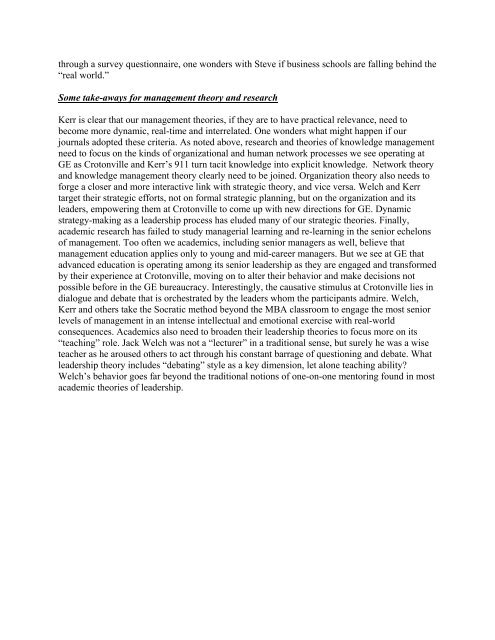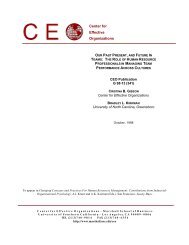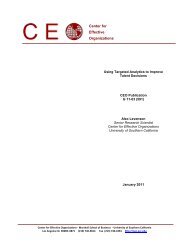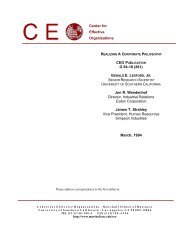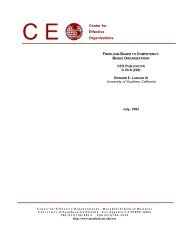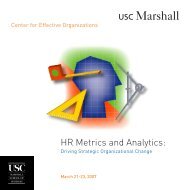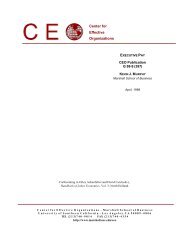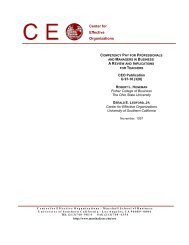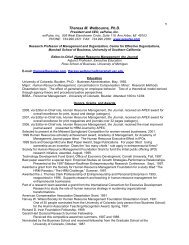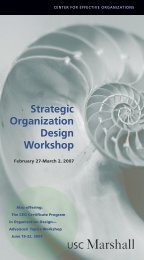Center for Effective Organizations - University of Southern California
Center for Effective Organizations - University of Southern California
Center for Effective Organizations - University of Southern California
You also want an ePaper? Increase the reach of your titles
YUMPU automatically turns print PDFs into web optimized ePapers that Google loves.
through a survey questionnaire, one wonders with Steve if business schools are falling behind the“real world.”Some take-aways <strong>for</strong> management theory and researchKerr is clear that our management theories, if they are to have practical relevance, need tobecome more dynamic, real-time and interrelated. One wonders what might happen if ourjournals adopted these criteria. As noted above, research and theories <strong>of</strong> knowledge managementneed to focus on the kinds <strong>of</strong> organizational and human network processes we see operating atGE as Crotonville and Kerr’s 911 turn tacit knowledge into explicit knowledge. Network theoryand knowledge management theory clearly need to be joined. Organization theory also needs to<strong>for</strong>ge a closer and more interactive link with strategic theory, and vice versa. Welch and Kerrtarget their strategic ef<strong>for</strong>ts, not on <strong>for</strong>mal strategic planning, but on the organization and itsleaders, empowering them at Crotonville to come up with new directions <strong>for</strong> GE. Dynamicstrategy-making as a leadership process has eluded many <strong>of</strong> our strategic theories. Finally,academic research has failed to study managerial learning and re-learning in the senior echelons<strong>of</strong> management. Too <strong>of</strong>ten we academics, including senior managers as well, believe thatmanagement education applies only to young and mid-career managers. But we see at GE thatadvanced education is operating among its senior leadership as they are engaged and trans<strong>for</strong>medby their experience at Crotonville, moving on to alter their behavior and make decisions notpossible be<strong>for</strong>e in the GE bureaucracy. Interestingly, the causative stimulus at Crotonville lies indialogue and debate that is orchestrated by the leaders whom the participants admire. Welch,Kerr and others take the Socratic method beyond the MBA classroom to engage the most seniorlevels <strong>of</strong> management in an intense intellectual and emotional exercise with real-worldconsequences. Academics also need to broaden their leadership theories to focus more on its“teaching” role. Jack Welch was not a “lecturer” in a traditional sense, but surely he was a wiseteacher as he aroused others to act through his constant barrage <strong>of</strong> questioning and debate. Whatleadership theory includes “debating” style as a key dimension, let alone teaching ability?Welch’s behavior goes far beyond the traditional notions <strong>of</strong> one-on-one mentoring found in mostacademic theories <strong>of</strong> leadership.


